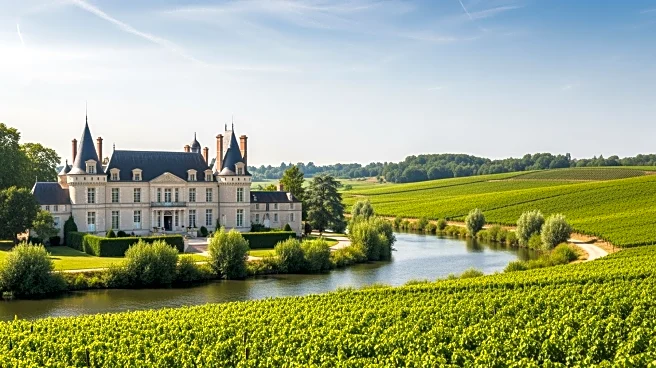What's Happening?
Hermès is expanding its leather goods production capacity across France, reinforcing its supply chain resilience and brand equity. By 2028, the company plans to open four new leather workshops, creating over 1,000 artisan jobs. This strategic move emphasizes
localized artisanal production, which not only safeguards against global disruptions but also sustains the premium valuations that define Hermès' market leadership. The expansion reflects Hermès' commitment to the 'Made in France' model and its focus on craftsmanship and exclusivity.
Why It's Important?
Hermès' expansion strategy highlights the importance of localized production in enhancing supply chain resilience, especially in the face of geopolitical tensions and climate risks. By investing in artisanal craftsmanship, Hermès not only strengthens its brand equity but also ensures a pipeline of skilled craftsmen, mitigating labor shortages and preserving its heritage. This approach offers a compelling blueprint for luxury brands seeking long-term value creation in an increasingly volatile world.
What's Next?
Hermès plans to continue expanding its production capacity, with new workshops specializing in iconic products like Kelly handbags and saddlery. The company is also focusing on sustainability, sourcing 80% of its leather from suppliers certified by the Leather Working Group. However, challenges persist in sourcing exotic materials, which Hermès is addressing through circularity initiatives and supply chain oversight.
Beyond the Headlines
Hermès' strategic expansion not only enhances its operational resilience but also reinforces its cultural significance as a symbol of luxury and exclusivity. The brand's commitment to artisanal production and heritage preservation sets it apart in an industry often driven by trends and mass production. This approach not only enhances its appeal among ultra-wealthy consumers but also positions Hermès as a benchmark for sustainable luxury practices.















